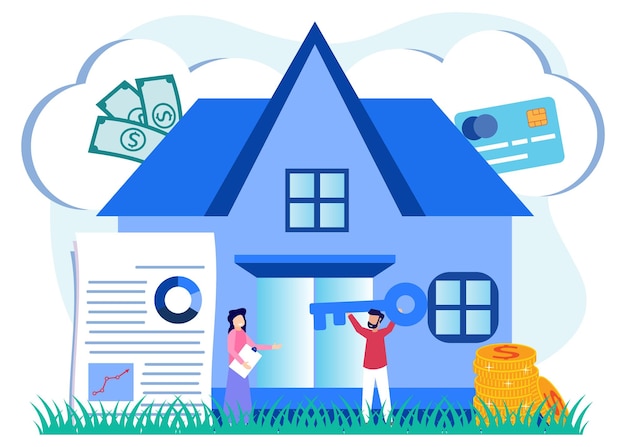
In simple terms, a Home Equity Line of Credit (HELOC) is a financial tool that allows homeowners to borrow money by using the equity in their homes as collateral. It’s akin to having a second mortgage, with the primary mortgage being the first claim on the property. Have you ever contrasted a HELOC and a home equity loan?
With a Home Equity Loan, homeowners can borrow a fixed amount of money using their home equity as collateral. Both forms of borrowing are anchored by your home as collateral, but they differ in several significant ways, each with pros and cons.
Let’s compare and contrast home equity loans and HELOCs, discussing the advantages, disadvantages, and more to help you understand which option is more suitable for you.
HELOC’s PROS
HELOCs behave like a revolving line of credit, similar to a credit card, offering flexibility for continuous expenses or projects. Initial costs are often lower than home equity loans, making them more affordable. Variable interest rates can be a boon when rates drop. You can draw money as needed over a set timeframe up to a certain credit limit. In some cases, tax law allows for HELOC interest to be a tax deduction.
HELOC’s CONS
Variable interest rates can also increase and drive up your borrowing costs. The easy access to funds can tempt some borrowers into incurring more debt than they can handle. It’s important to remember that you could lose your home if you can’t repay the loan.
HOME EQUITY LOAN’S PROS
The interest rates are fixed, meaning you have predictable monthly payments. The loan provides a one-time lump sum of money which can be very helpful for specific expenditures or debt consolidation. Home equity loans have a scheduled repayment plan, making budget management easier.
HOME EQUITY LOAN’S CONS
An increase in interest rates can spike up your repayment. Similar to a HELOC, with a Home Equity Loan, failure to repay can result in the loss of your home.
HOW TO SECURE A HELOC AND A HOME EQUITY LOAN
Now, let’s break down the process of acquiring these loans – from application to credit and appraisal requirements.
1. ASSESS YOUR FINANCES
Calculate your home’s current market value and equity, then decide on the amount you wish to borrow based on your financial goals.
2. RESEARCH LENDERS
Browse different lenders such as banks, credit unions, and online platforms and look for competitive rates and terms. Don’t forget to seek advice from trusted sources.
3. APPLY FOR A LOAN
Understand essential factors such as home equity, credit score, and debt-to-income ratio (DTI) before you apply since these will come into play during the loan application process.
4. PROPERTY APPRAISAL
Your lender may necessitate an appraisal to establish your home’s current market value.
5. MEET CREDIT REQUIREMENTS
Observe your credit report to ensure accuracy and realize your creditworthiness. Aiming for a credit score of 620 or more will prove beneficial for home equity loans.
6. UNDERSTAND CLOSING COSTS
Closing costs cover application fees, title searches, attorney fees, and more. The costs vary depending on your location and the type of loan.
7. CLOSING THE LOAN
Once your loan is approved, you’ll receive the terms of the loan which include interest rates, loan amount, and the repayment schedule. If the terms are in line with your needs, sign the loan agreement to finalize the process.
CLOSING REMARKS
Ultimately, choosing between a HELOC and a home equity loan depends on your personal financial goals and preferences. Bear in mind, though, defaulting on these loans could result in losing your home. Hence, carefully consider all elements beforehand.


